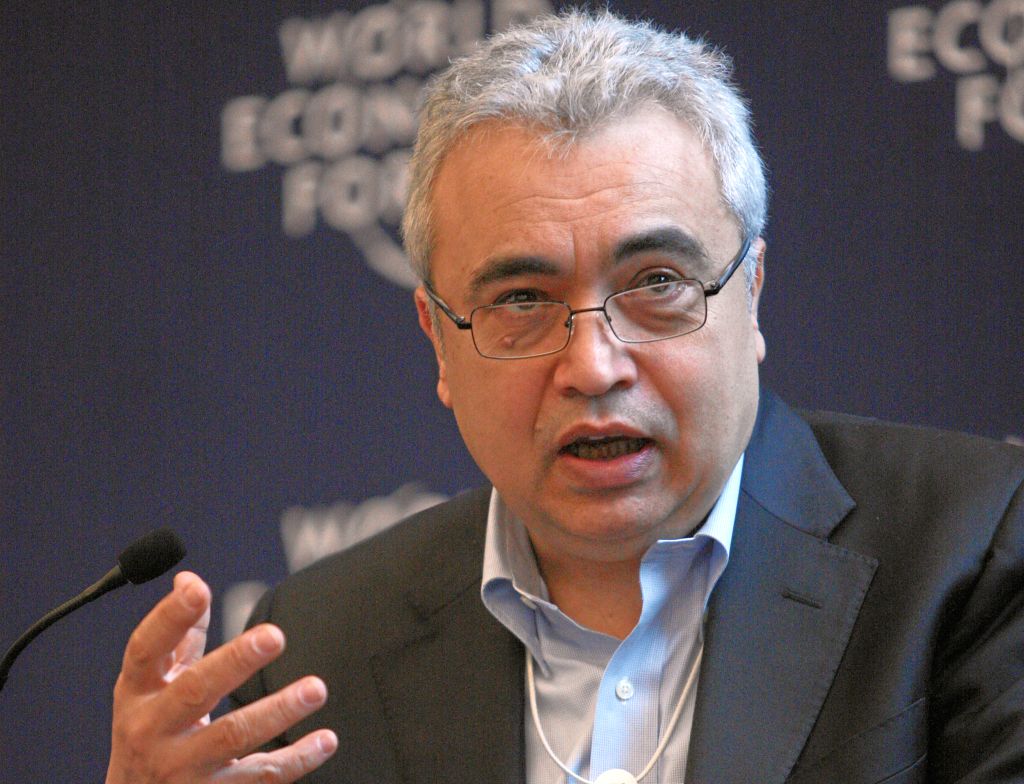The(IEA) and Turkish economist, Fatih Birol, expressed his opinion on Germany’s nuclear phase-out and increased coal import policy in an interview mait BILD. The IEA advises various countries, including EU member states and the USA, on important energy issues. BILD wanted to know from Birol whether the European electricity system had enough capacity to support the massive expansion of heat pumps according to the Ecodesign Directive (Bild: 11.06.23).
Head of the IEA warns of bottlenecks: Europe needs more electricity at cheap prices
IEA head Birol replied that the European electricity system was working well so far. However, he hoped that electricity production would increase in the future. Birol expressed the wish that Europe had more electricity available at a favourable price than at present, as this could otherwise lead to difficulties.

Bild: World Economic Forum from Cologny, Switzerland, CC BY-SA 2.0, via Wikimedia Commons
With regard to Germany’s increased coal imports since the end of 2021, Birol described this as an emergency measure. He criticised Germany for making itself dependent on a single country, Russia. Birol stressed that many citizens and businesses are feeling the consequences of this mistake today, now that Germany no longer receives gas supplies from Russia. The increased coal imports are necessary to avoid cold homes and power cuts, he said.
Expert warns against wrong decision: Was the nuclear phase-out a mistake?
Asked whether it had been a mistake to phase out nuclear power at the same time, Birol replied that he had always stressed that Europe needed to diversify its energy sources and become more independent. Therefore, he would always be reluctant to close down own energy sources. Birol personally would have been against the shutdown of nuclear power plants in Germany.
Germany’s decision to use coal as a bridging technology by importing hard coal from countries such as South Africa and Colombia and lignite from their own areas is assessed by Fatih Birol as follows: He hopes that this is a short-term measure and that Germany does not believe it can replace Russian gas and nuclear power with coal in the long term. Birol emphasises that in order to achieve the climate goals and limit global warming, energy efficiency must be significantly improved. This could decisively reduce greenhouse gas emissions.
Climate targets at risk: doubling of energy efficiency by 2030 necessary
In order to achieve the climate targets, it would be necessary to double the progress made so far in energy efficiency by 2030. This would make it possible to achieve the goal of limiting global warming to 1.5 degrees and at the same time make the energy supply more secure and affordable.
According to Birol, the heat pump is one of the most important tools for increasing energy efficiency. However, it requires a significant amount of renewable electricity to be effective in the fight against climate change.
In the last twelve months, CO₂ emissions per kilowatt hour of electricity in Germany were 330 grams. This puts Germany at about the same level as Bulgaria and Bosnia-Herzegovina. The expansion of renewable energies is more important than ever after the phase-out of nuclear power. However, the tripling of the expansion rate targeted by the German government is still a long way off.
